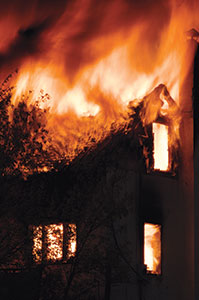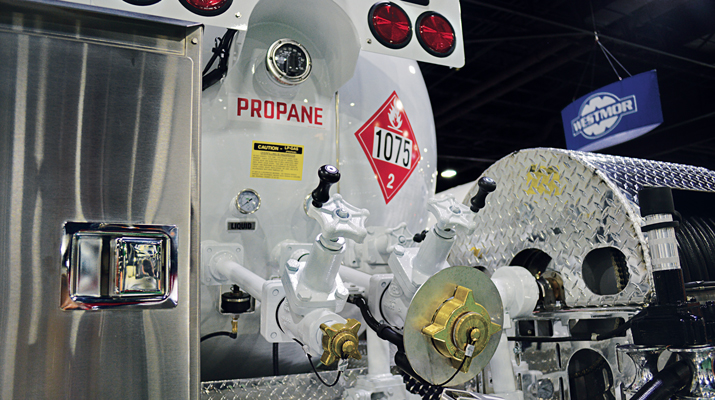Legal-theory scenario leads court to dismiss gas company from CSST case

Case allegations were that corrugated stainless steel tubing (CSST) was defective because a lightning strike perforated it, resulting in a gas leak and a subsequent house fire. Istockphoto.com/IanChrisGraham
Our office was recently involved in a Connecticut case over allegations that corrugated stainless steel tubing (CSST) manufactured by Omega Flex Inc. was defective because a lightning strike perforated it, resulting in a gas leak and subsequent house fire.
The homeowner’s insurance company, Standard Fire Insurance, sued Omega Flex, claiming the product was defective, as it should have been able to withstand a lightning strike. In Connecticut, the essence of a product liability claim is that the product, as sold, was unreasonably dangerous for its intended use because of the way it was designed or manufactured.
CSST litigation and problems related to its failure from lightning strikes have been the subject of more than a few articles in this magazine and in the industry. I have written other articles on CSST-related litigation.
In this case, the insurance company only sued Omega Flex under the legal theory that its product was defective. In many cases, the plaintiff also sues the CSST installer, but that didn’t happen here. Instead, Omega Flex sought to bring the installer, Bemer Petroleum and also our client, into the lawsuit on a theory of negligent CSST installation. This action was brought pursuant to a state statute that a party can use to seek contribution or indemnity. Here, Omega Flex was seeking contribution toward any damages it might pay for this loss from Bemer.
Upon being brought into the case by Omega Flex, Bemer sought dismissal from the case under what is called a 12 (b)(6) motion for failure to state a claim upon which relief may be granted. Without getting too far into the weeds, the essence of this legal argument is this: Omega Flex could not sue Bemer for contribution based on a negligence claim when it was only being sued for a claim based on a defective product as defined by statute.
Product liability is a legal claim based on statutes created by the state. A claim of negligence is what is known as common law and is created by court decisions. Connecticut had ruled in a prior case that a party cannot maintain a claim against another party for contribution based in negligence when the claim being asserted against it is based on product liability.
The thinking behind this prohibition is that product liability claims are not based on the notion of fault but instead on the notion of “allocation of plaintiff’s loss to the product seller who puts a defective product into the stream of commerce, and therefore ordinarily is able to spread the loss by price adjustments.” Negligence claims, on the other hand, are based on the relative fault of the parties. These two legal theories, product liability and negligence, cannot be comingled to apportion fault.
Here, the court agreed that Omega Flex could not sue Bemer for contribution based on negligent CSST installation when the plaintiff had only sued it under Connecticut’s product liability statutory scheme. As a result, the court dismissed Bemer from the lawsuit.
The approach taken here by the insurance company that brought suit against Omega Flex may be the beginning of a well-reasoned and positive development in the area of CSST litigation. The plaintiff-insurer had the right to sue Bemer under a negligence theory but chose not to as it saw this case based purely in product liability. The assumption is that the plaintiff-insurer determined that the essence of its claim was against the manufacturer of the product for how it was designed and manufactured.
If this trend were to gain momentum, it would reduce the number of claims and lawsuits in which marketers that often install CSST find themselves a party. And that would be a good thing.
John V. McCoy is with McCoy Leavitt Laskey LLC, and his firm represents industry members nationally. He can be reached at 262-522-7007 or jmccoy@MLLlaw.com.
















